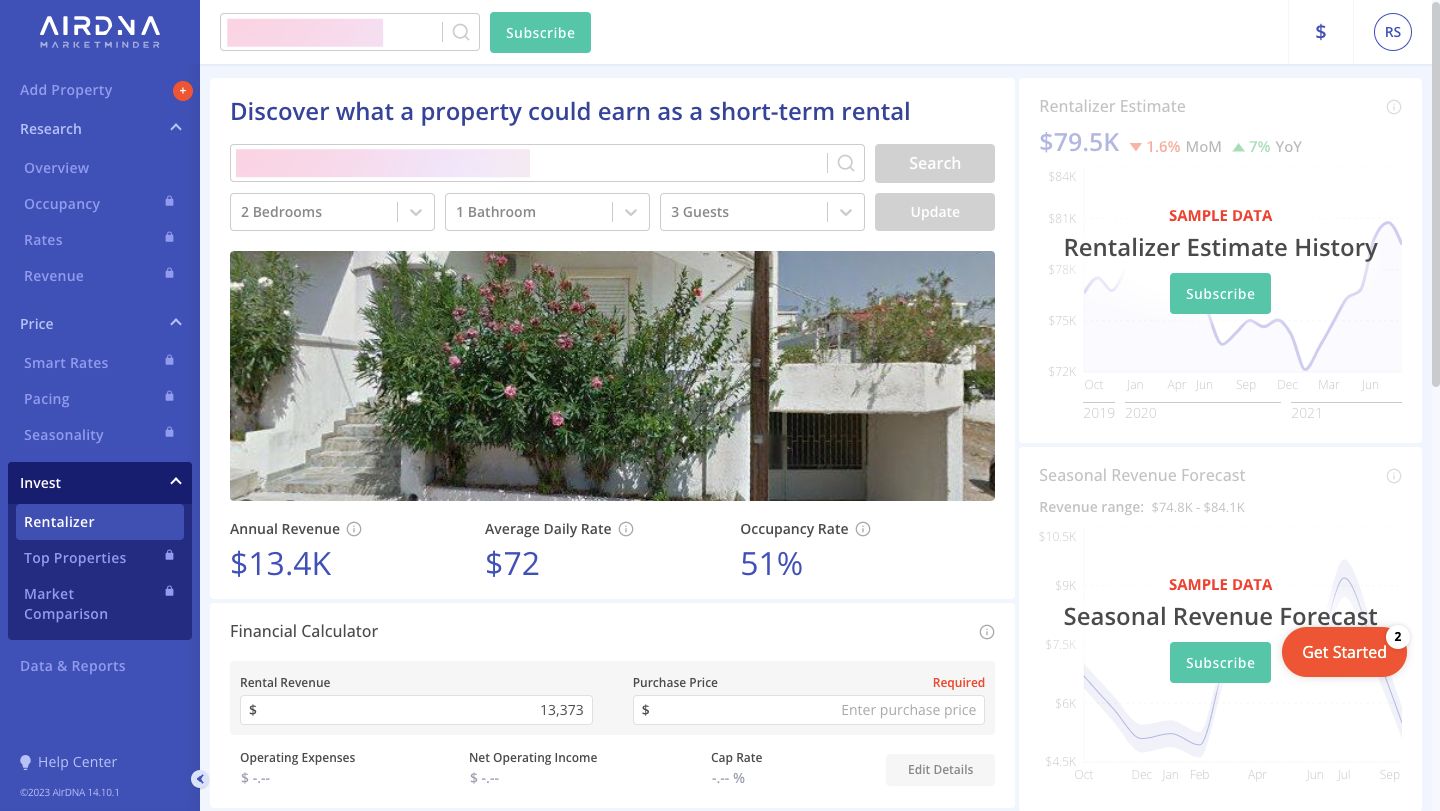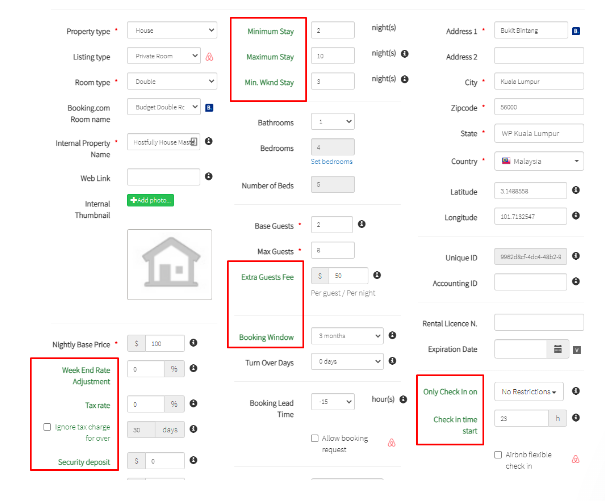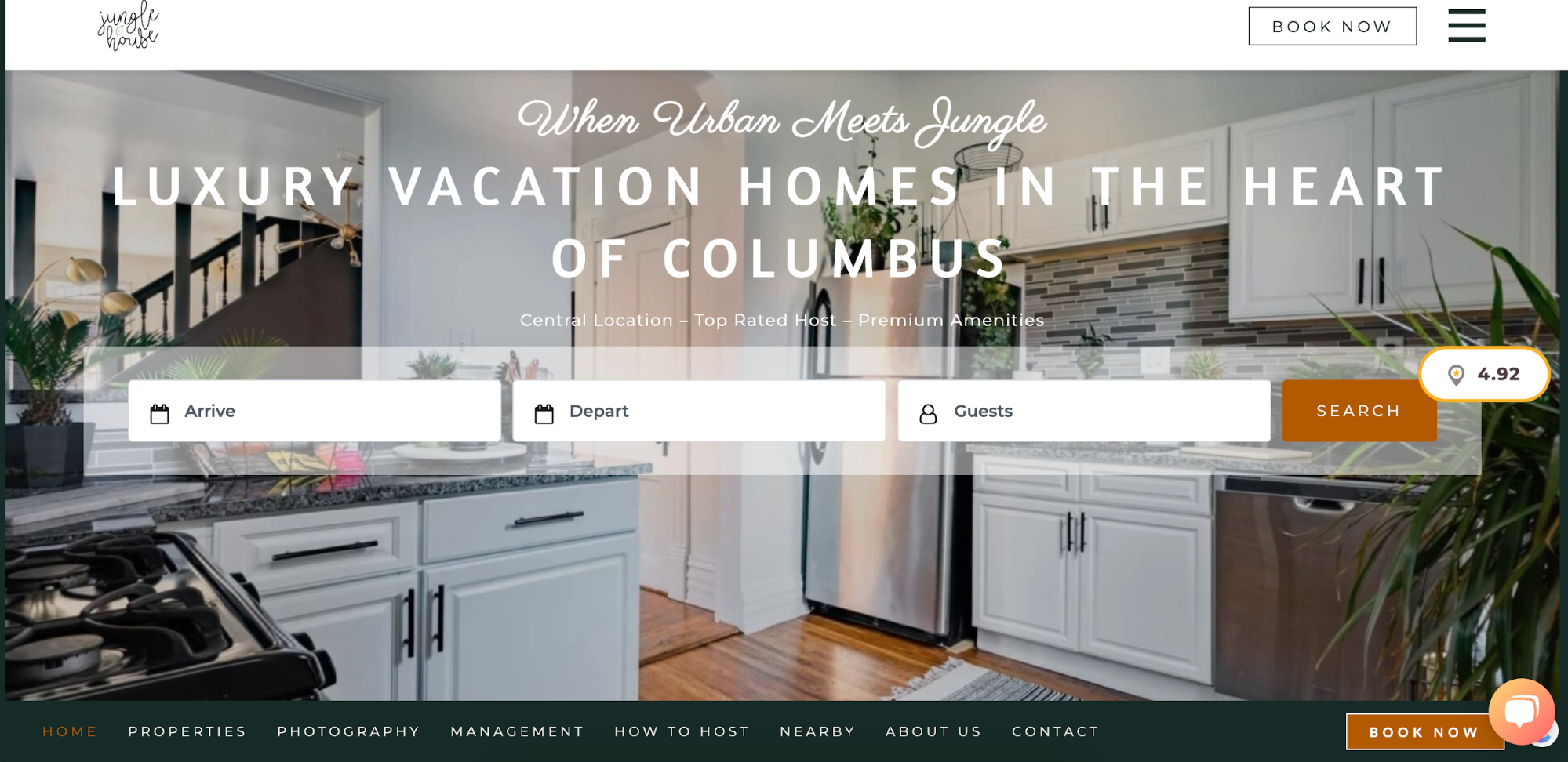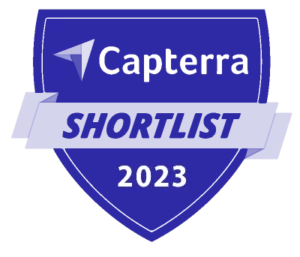Running a vacation rental business demands time and effort but when done right, the rewards far outweigh the challenges. There’s a chance to get creative, make people happy, and turn a profit. What’s not to love?
If you’re considering venturing into the vacation rental industry, demand is high so go for it! Experts predict the mean average nightly rate will climb to $326 in 2024; a significant increase from $243 in 2019.*
Yet many aspiring vacation rental managers balk at the potential pitfalls. Focusing on the wrong market can risk losing your investment and wasting your time.
Key to setting up your vacation rental business for success is careful market and strategy research. Our guide will help you understand what to take into consideration by exploring:
- The different models of vacation rental management
- How to lay the foundations for a scalable business
- What steps you need to take to get started
- Which online communities to join (with podcast recommendations)
- How to save money when furnishing a property
| Create a scalable vacation rental business
Hostfully streamlines operations and automates tasks to reduce your workload and create exceptional guest experiences. |
* 2024 Short-Term Rental Mid-Year Outlook, AirDNA
What is a vacation rental business?
A vacation rental business offers fully furnished accommodation to travelers as an alternative to hotel stays. Guests enjoy a home away from home while the owners profit from renting out their properties.
Usually a person running the short-term rental business falls into one of three categories:
Renting your own properties
If you own real estate in a tourist hot spot, you could turn your properties into vacation homes. You can also invest in a property specifically to rent it out as part of your short-term rental business, however but this option involves the most upfront costs and financial risk.
Rental arbitrage
Rental arbitrage is one way to jump into the vacation rental industry without the high costs of paying for properties. First you lease rentals from a landlord, and then sublet them to travelers.
However, renters have less freedom over their properties as leases often restrict activities like long-term bookings and marketing strategies.
Managing properties on behalf of owners
The most common way to grow a vacation rental business is to offer your property management services to homeowners. This business model benefits both the managers, who can quickly add properties to their portfolio, and the owners, who don’t have to run a full-time business but still reap the financial rewards.
A key challenge you’ll have to face as a short-term rental (STR) property manager is building trust with property owners in the early stages of your business. Owners may hesitate if you don’t have experience or a proven track record. That’s why many STR managers start business with their own properties, and, once they’ve experienced some success, market their services to other owners.
Do you have the skills, tenacity, and energy to be a successful vacation rental property manager?
Many people think the vacation rental industry is an opportunity to make passive income. But the reality is that property management can be highly demanding and, without the right tools, it can quickly lead to burnout.
However, if the following characteristics describe your personality, you could be well-suited to the demands of running a vacation rental business.
- Strong communicator: As well as welcoming and assisting guests, you’ll be managing cleaners and staying in regular contact with owners. You’ll need to be precise and supportive to your team, as well as helpful and approachable to guests.
- Problem solver: Running a vacation rental business means lots of unexpected challenges. One day, you might be handling complaints about a late-night party, and the next, a sudden surge in bookings could add pressure and test your task management skills. Finding quick, effective solutions will spare you from stress and keep the business running smoothly.
- Customer-oriented: Your business will have two customers: guests and owners. That means double the work accommodating people’s needs and addressing their concerns.
- Adaptive: The hospitality industry is dynamic and small changes in the market can have huge knock-on effects. (Just look at how one website (Airbnb) rocked the market back in 2008!) That means you can’t be resistant to change—prepare to adapt how you operate your business to stay efficient and competitive.
- Forward-thinking: Managers benefit from staying on top of the latest hospitality technology and trends. The right software lets you automate operations, manage vacation properties remotely, and gain insights into business performance. If you go without, you’ll struggle to scale your property portfolio.
Laying the foundations for a vacation rental business
When starting a vacation rental business, you can split your strategy into two distinct phases: Planning and preparation.
Here, we’ll explore the research you should conduct and the key decisions you’ll have to make.
Choose a property location
Begin the process of developing a business strategy by identifying a suitable location for your operations. And with the help of remote property management software like Hostfully, you’re no longer bound to a specific area. You can select a location that suits your needs, preferences, and targeted market.
Here’s a list of questions to consider:
- Where’s the demand? Online listings give you a fast way to check which areas are popular destinations for travelers. Check websites like Airbnb and Booking.com to see if there are already rentals in the area. If not, it could be a sign of some barrier to success you should be aware of—or it could indicate an exciting niche that’s ready to be exploited.
- What do the local laws say? Some states and cities have strict rules on how short-term businesses have to operate. For example, Denver has a primary resident requirement which means the owner must live in the property for at least six months of the year. Rules like these might conflict with your business plans and make the area a no-go. Check the local tourism board and chamber of commerce websites to find the relevant information.
- What’s your target market? Different locations will attract different kinds of guest. Say you’re considering a woodland area. Parents with children might prioritize convenience and accessibility to local activites, hiking enthusiasts will prefer to be close to the best trails, and couples may look for seclusion and idyllic scenery. So, begin to narrow down your choices by finding the best spot for your target market.
- Will this property do? By now, you may have rounded down your options to just a few locations. You can investigate the potential for revenue using specialized software, for example, AirDNA’s rental property calculator.

Evaluate finances and set a budget
Now you’ve pinpointed a location, you can analyze the local competition and assess your costs more accurately.
First, calculate how much you’ll need to spend to get the business up and running. Here are the key costs you should focus on (note that the first two points are based on the assumption you’ll be investing in and renting your own property):
- Property acquisition, lease payments, and owner shares
- Renovation, furnishings, and appliance installation
- Operating expenses like cleaning services and utilities
- Marketing and advertising
- Guest amenities and supplies (toiletries, linens, etc)
- Professional services like legal advice and accounting
- Maintenance and repairs
- Taxes and licensing fees
- Vacation rental management software
Then conduct a competitor analysis to get a ballpark estimate of how much you can charge. Analytics tools like Key Data give you industry benchmarks so you can make data-driven decisions rather than relying on your own research and judgment.
Key Data can also help you with the final step: creating realistic financial goals. Using your property and market data, the software can forecast revenue, generate budgeting goals, and monitor how well you’re sticking to your targets.
Develop a business plan
With a budget in place, you’ll find it easier to define realistic goals. So, the next step is creating a roadmap for your business, defining benchmarks for success, and identifying the key performance indicators (KPIs) you’ll use to measure your progress.
Here’s an overview of the essential items to include in a vacation rental business plan:
- A description of your company including your mission statement and unique selling point (USP)
- Your financial, operational, and marketing goals
- Your guest persona i.e. your target demographic and their interests, motivations, and booking habits
- What makes you stand out from competitors
- A rundown of how you’ll operate your business and manage employees
- A list of your expenses
- Your pricing strategy
- How you’ll scale your business
- How you’ll market your properties, including your branding strategy
Join communities
Online communities can provide you with much-needed support which is especially key in the early days. They’re full of experienced business owners who know what opportunities and challenges to look out for. Here’s where you can find them:
- Social media groups on Facebook, especially Vacation Rental Pros
- Forums like Reddit and Airbnb community
- Influencers of which there are too many to mention but Matt Landau and Tyann Marink are great for first-time managers
- Podcasts like Get Paid For Your Pad and The Hosting Journey
- Webinars run by VRMA, Rentalpreneurs, and our very own Hostfully team
Building a vacation rental business
Onto the next stage: preparation. This section covers the work you need to do before you can open your doors to guests.
Prepare the property for guests
Now for the creative part of starting a vacation rental business: decorating, furnishing, and equipping the properties.
The main limit is your budget but there are ways to stretch out your dollars. Search online marketplaces like Facebook and Craigslist or visit second hand stores to find quality, preowned furniture. You can check with the Buy It For Life community to see which brands of homeware are the most durable, even after years of use.
When it comes to linens, towels, and toiletries, buy wholesale and in bulk to get reduced costs. Wayfair offers special deals for members which can lower the expense of furnishing multiple properties.
While preparing properties is a chance to express your creative instincts, you have to consider your target market. For example, digital nomads probably need an office area whereas families will prioritize extra bedrooms. And sports enthusiasts will prefer access to equipment while guests looking to unwind want spa facilities.
Guests love surprises like welcome baskets and complimentary upgrades but before you pull out all the stops, ensure decor, amenities, and appliances match guest expectations.
Set prices
In the planning stage, we talked about forecasting prices. Now’s the time to create a pricing strategy. That means deciding on factors like:
- Weekend rates
- Minimum and maximum stays
- Charges for extra guests
- What discounts and deals you’ll offer
If you’re managing multiple properties, however, manual pricing can be complicated and inefficient. You should consider the seasonality of your vacation rental business, while accounting for holidays, school terms, and local events. Plus, there are promotional events and last-minute deals to factor in.
Pricing tools like Beyond Pricing or PriceLabs calculate the optimal nightly rates for you. They analyze market data to find prices that keep you competitive while generating the most revenue possible. You can combine them with Hostfully’s bulk editing tool to apply changes to your listings according to your rules.

Create listings
When you’ve decided on your pricing strategy, you need websites to list them and that’s where a channel manager can save you time and give your properties more exposure.
A channel manager syncs your bookings across multiple booking sites, including popular online travel agencies (OTAs) like Vrbo, Airbnb, and Booking.com, plus niche sites where you can reach your target market more directly.
All you have to do is add or amend listings on the centralized dashboard and the software automatically updates them on every website. That means you don’t have to edit everything manually yourself.
Once you’ve started accepting guests, channel managers also sync all your reservation data. No need to worry about accidentally double-booking or hunting through websites to find guest details.
Create a direct booking website
While listing sites are a great source of bookings, they usually take a commission of around 15% to 30%. These fees cut into your profits and impede your ability to grow your business.
One way to maximize your revenue is cutting out the middleman and creating a direct booking site. Not only do you avoid fees, but you can also build a trusted, instantly recognizable vacation rental brand that attracts more guests and improves occupancy.
If you don’t see yourself as a website or graphic designer, not to worry. Platforms like Hostfully have user-friendly vacation rental website builders that let you fully customize each page without having to learn code. These websites also sync with your other software so listings update automatically when you change them on your PMS’s central dashboard.

Develop your tech stack
As you prepare your properties and market them online, you’ll encounter different software to help you with the process. You’ll continue to use these platforms as you welcome your first guests and expand the business, so make well-considered choices.
That means making sure you have all the necessary software and that they’re the right ones for your business.
While the following platforms aren’t part of an exhaustive list, these tools are the most essential to streamlining and automating your vacation rental business.
- Property management platform: The hub of your operations—your PMS consolidates all your pricing, reservation, and communication processes into one place and automates them. The best choice of vacation rental PMSs will also integrate with all the other key software you need.
- Channel manager: This lets you manage listings across multiple listing sites and syncs availability, rates, and bookings in real-time, which eliminates the risk of double bookings.
- Digital guidebook: A mobile-friendly guide to the property and surrounding area. Bonus: if you answer guests’ frequently asked questions, you can reduce the time you spend in one-to-one communication.
- Property care management: A tool to streamline, automate and remotely oversee maintenance tasks on properties.
- Communication: A collection of tools including messaging, notifications, and templates to make talking to guests more efficient.
- Dynamic pricing tool: Software that adjusts the rates for your properties based on market data and finds the optimal prices to make you the most revenue.
- Smart locks: Keyless entry to properties so you don’t have to coordinate check-in times with guests by welcoming them in person or worry about tracking down or losing keys.
- Guest screening: Software that runs background checks on guests, verifies their identities, and analyzes their reviews and ratings from previous stays, which minimizes the risk of a problem stay.
The key to starting a successful vacation rental business
Despite tales of the contrary, vacation rental management isn’t a passive venture. Starting a successful business takes time and energy.
That’s not necessarily a bad thing—running a property management company can be extremely rewarding if you plan and prepare well. It means doing your research, seeking advice and support from the right people, and using all the resources at your disposal—including specialized software.
In fact, you can do most of the business setup from your desk.
With access to online tools and communities, you can pinpoint a location, evaluate your finances, and network with other managers. That cuts out a lot of the time spent driving around to check out areas and look at properties to see if they’re worthwhile investments.
And when it’s time to launch, you can ensure a smooth start with software like Hostfully. You can attract potential guests by creating a trustworthy brand and listing across all the most popular booking sites. And when you automate operations and make them as scalable and efficient as possible, you can start competing with more established businesses. The vacation rental sky’s the limit.
| Make the right strategic choices to create a scalable vacation rental business
Hostfully streamlines operations, automates tasks, and optimizes efficiency to reduce your workload, create exceptional guest experiences, and maximize revenue |







